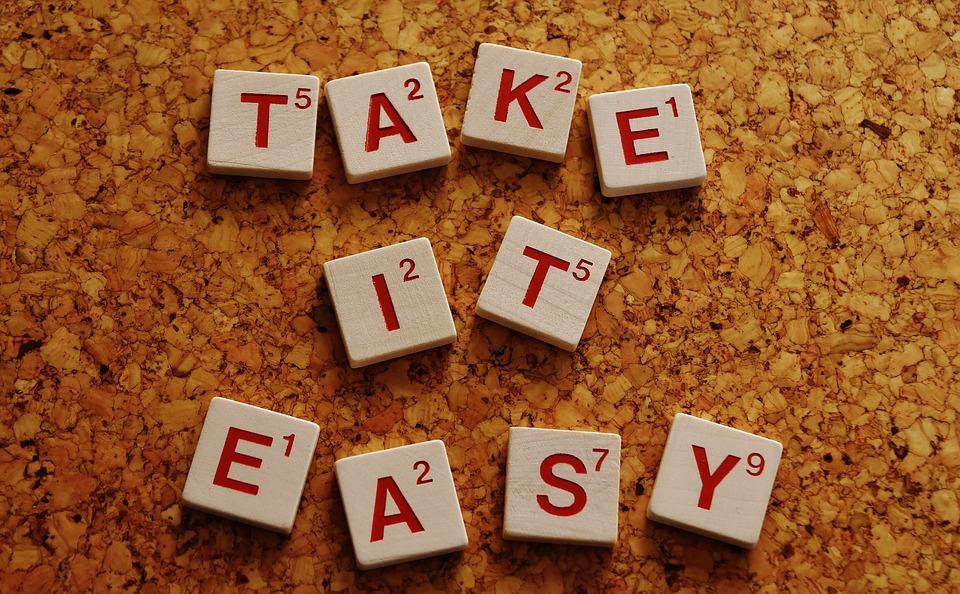The Way We Usually Think (and Feel)
I was having lunch with a group of people recently, and one woman (I’ll call her Jane) was talking about her experience at her doctor’s office. She has lived with chronic pain for many years, and she was describing one of her strategies to help her cope. “I try to keep perspective, and especially when I go in to see my doctor, I see these other people who have situations that are so much worse than mine, and I say to myself “come on, {Jane}, knock it off…think of how much worse you could have it.”
I took that information in for a moment and paused. Then I said, “I think it is so great to keep perspective in life. And I think it is important that you are compassionate to yourself about your experience. It is so much harder on you to guilt or shame yourself about what you’re feeling on top of the pain.”
She looked at me as if I had two heads. She didn’t know any other way to be. “But I shouldn’t let myself feel bad about my pain, think about those other people!”
“We’re so hard on ourselves, all the time, right? We are ‘our own worst critic’”, I explained. I thought for a moment about my own experiences and journey to arrive at this way of thinking. “I’m going to ask you a question to ponder, and sometimes people say yes, which is something to think about….you’re in pain, and when you feel that pain affect you, you don’t give yourself compassion, but rather you scold yourself and guilt yourself for having those feelings. If that was somebody else scolding you and “guilting” you, would you keep that person around?” I paused. “Sometimes people do keep others like that in their life….and objectively, to look at a relationship like that, most people would find it objectionable, or distasteful to say the least.”

The Way You Can Choose to Think (and Feel)
I saw what I believe to be a moment of insight flash across her eyes, and then her expression turned skeptical. “What do you do?” she inquired. “You make a mistake and then just tell yourself it’s ok?”
“Well, I do forgive myself for mistakes yes. And when I have feelings that may not be completely rational, or I recognize that others have it much worse, that may help me reframe my own situation, but I have compassion for myself and I don’t pile on shame or guilt for feeling the way I feel. It took me some time to get there, but it just took a slight mindset shift and the new approach quickly became a habit.”
Jane pondered my answer, and a few seconds later, somebody made a joke and the group was on to the next topic. I followed up with Jane a couple weeks later, and she said that our conversation really stuck with her. She got deeply emotional when recognizing how much her self-talk was filled with harsh criticism that she would never want from a friend.

What to Do Differently
I know on my journey, something big shifted for me when I thought about “What would I want to hear from a friend in a moment like this?”, and I became that friend to myself. I felt my resilience grow, I noticed that I processed challenging situations much faster, and I felt a greater inner harmony. And here’s the kicker – just because I show compassion to myself, doesn’t mean I don’t strive to be better, or strive to be grateful for what I do have. Many people believe that their self-criticism is what drives their self-improvement, and they fear that losing that will remove their motivation to change. But in reality, it is something else (different things for different people) that motivate them to change and improve, and beating up on yourself only puts you in a negative mindset, where learning is more difficult, and resilience can be stifled.
I encourage you to practice, or even just experiment, with the idea of being compassionate with yourself, and notice what feels different. If you wanted to support your best friend in that moment, what would you say to him or her? Try saying it to yourself. Do you really lose the desire to improve, just because you’re kind to yourself? I expect not…
To get hands-on knowledge, tips and experience to practice self-compassion, sign up to for my Leaders Journey email list!
Ready to take your leadership to the next level? Get your FREE copy of my eBook, Level Up: 3 Steps to Be a Better Leader. Click here to download!

